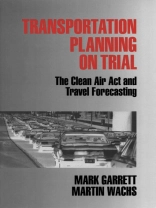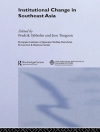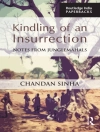Authors′ ad copy***Use whenever possible*** The Clean Air Act of 1991 and the Intermodal Surface Transportation Efficiency Act of 1994 require that metropolitan transportation planning agencies give high priority to the improvement of air quality. Under these laws, transportation planners must design regional highway and transit systems that contribute substantially to the attainment of federal air quality standards. This new requirement reveals important limitations to the standard methods by which transportation planners do their work. The mathematical models and statistical techniques used by transportation planners appear to be inadequate to enable them to analyze the air quality implications of alternative transportation plans. This was the situation when a group of environmental organizations brought suit in federal district court alleging that the Metropolitan Transportation Commission in the San Francisco Bay area had violated requirements of these laws in its transportation planning and highway funding activities. This volume provides an account of the legal dispute that pitted environmentalists against regional transportation planners, and which demonstrated that regional transportation planning methods are in need of substantial improvement. This monograph should be of interest to urban planners, environmentalists, public policy analysts, and those who apply mathematical modeling and statistical analysis to questions of public policy. The authors–an attorney and a transportation planner who took part in the lawsuit–analyze the specific arguments made by both sides in this important legal action, and draw from the specific case broader conclusions about the role of technical analysis in public policy making. *************************************************************** Urban planning does not and cannot exist in isolation–there are a large number of external factors that impact on a planner′s work including politics and the planning commission; environmental impact studies; and national, state, and local legislation. Focusing on the interrelations between federal legislation, the judicial process, and transportation planning, Transportation Planning on Trial examines the interaction between regional transportation planning and environmental, particularly air, quality. This unique volume is designed to help urban planners understand the legal restrictions and requirements that directly impact how they operate. It considers two recent federal legislation pieces–the Clean Air Act of 1990 and the Intermodal Surface Transportation Efficiency Act of 1991–that mark the most important landmarks in a decade-long shift in emphasis in regional transportation planning. This groundbreaking volume will be vitally important to transportation planners, students of urban and transportation planning, transportation policymakers, environmentalists and environmental lawyers.
Cuprins
Introduction
The Bay Area Lawsuit
The Metropolitan Transportation Commission′s New Conformity Assessment Procedures
Implementing the Transportation Contingency Plan
Analysis and Conclusions
Despre autor
Mark Garrett holds a Ph.D. in urban planning from the University of California, Los Angeles (UCLA) Luskin School of Public Affairs and a J.D. from the UCLA School of Law. For a number of years he was a practicing attorney in California specializing in land use, transportation, and environmental issues. He is currently serving as a member of the research faculty in the Lewis Center for Regional Policy Studies at UCLA and also teaches courses in the Department of Urban Planning. Garrett is the co-author with Martin Wachs of Transportation Planning on Trial: The Clean Air Act and Travel Forecasting, and has contributed to articles in the UCLA Journal of Environmental Law and Policy, the UCLA journal Critical Planning, the Berkeley Planning Journal, the Transportation Research Record, and the Journal of the American Planning Association. Garrett has been an adjunct professor in the Saint Louis University (SLU) School of Law and a faculty member in the Department of Policy Studies in SLU’s College of Education and Public Policy. He has also taught at the Ohio State University, the University of Michigan, the University of Illinois, and Virginia Commonwealth University. His current research focuses on sustainability and legal and social equity aspects of urban land use and transportation planning. He presently resides in Los Angeles, California.












